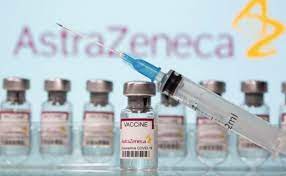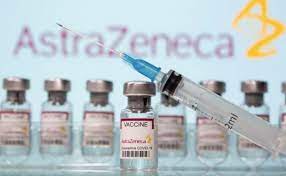
Poorer countries of the world have declined to accept tens of millions of AstraZeneca Covid-19 vaccines from the worldwide COVAX programme, according to reports citing information from a WHO document. This is the latest hint that the vaccine's short shelf life is sapping demand.
COVAX is the world's largest vaccine-sharing initiative for COVID-19. It is co-managed by the World Health Organization (WHO) and the vaccine alliance Gavi, and has so far provided 1.4 billion vaccines to 144 countries.
COVAX assigned almost 200 million doses to 61 less developed countries, including most African governments, during the six months leading up to September, as part of a push to enhance immunisation in poorer countries.
However, only a small percentage were AstraZeneca, according to a COVAX dossier dated April 11 and published this week by the WHO.
Several nations "expressed shelf life preferences that could not be matched with available AstraZeneca supply," according to a Gavi spokeswoman speaking on behalf of COVAX. As a result, they were allocated alternate vaccines.
According to the dossier, countries turned down almost 35 million AstraZeneca doses in favour of vaccines made by Johnson & Johnson, Pfizer, and Moderna.
Poorer countries only requested roughly half a million doses of the AstraZeneca Covishield vaccine made by the Serum Institute of India, which COVAX had first considered as its major supplier, for the six months.
According to the document, they sought roughly 16 million doses of the AstraZeneca Vaxzevria vaccine, which is comparable to the amount of Chinese vaccine doses requested.
J&J and Pfizer had substantially higher demand, with 70 million and 40 million requests, respectively.
Among the leading COVAX providers, AstraZeneca's Vaxzevria has the shortest shelf life. This has lowered its popularity in developing countries, which have significant logistical challenges in administering doses as well as high vaccination reluctance.
Vaxzevria has a six-month shelf life, however due to quality checks and red tape, the vaccine frequently leaves AstraZeneca plants with only a few weeks before expiring.
Gavi claims it has been encouraging AstraZeneca to submit to the WHO for an extension of the expiration date for months.
AstraZeneca declined to comment on the COVAX vaccine allocation, but said it was working with regulators and the World Health Organization to extend the shelf life of the vaccinations.
Covishield's shelf life has previously been extended from six to nine months by the WHO.
AstraZeneca reported that it had distributed over 2.9 billion vaccines worldwide, the majority of which were to low- and lower-middle-income countries.
Some countries declined more AstraZeneca vaccines because they already had COVID-19 doses on hand, according to Gavi.
According to a second WHO document released this week, most poorer COVAX-serving countries requested inadequate doses to reach the WHO objective of vaccination at least 70% of their population by the middle of the year.
Syria and Sudan chose to get the most AstraZeneca vaccines during the April-September period, with about 3 million and about 2 million doses, respectively.
Nigeria, Africa's most populous country, will not receive any AstraZeneca vaccines from COVAX in the future months, instead opting for around 4 million J&J vaccines, according to the paper.
(Source:www.alarabiya.net)
COVAX is the world's largest vaccine-sharing initiative for COVID-19. It is co-managed by the World Health Organization (WHO) and the vaccine alliance Gavi, and has so far provided 1.4 billion vaccines to 144 countries.
COVAX assigned almost 200 million doses to 61 less developed countries, including most African governments, during the six months leading up to September, as part of a push to enhance immunisation in poorer countries.
However, only a small percentage were AstraZeneca, according to a COVAX dossier dated April 11 and published this week by the WHO.
Several nations "expressed shelf life preferences that could not be matched with available AstraZeneca supply," according to a Gavi spokeswoman speaking on behalf of COVAX. As a result, they were allocated alternate vaccines.
According to the dossier, countries turned down almost 35 million AstraZeneca doses in favour of vaccines made by Johnson & Johnson, Pfizer, and Moderna.
Poorer countries only requested roughly half a million doses of the AstraZeneca Covishield vaccine made by the Serum Institute of India, which COVAX had first considered as its major supplier, for the six months.
According to the document, they sought roughly 16 million doses of the AstraZeneca Vaxzevria vaccine, which is comparable to the amount of Chinese vaccine doses requested.
J&J and Pfizer had substantially higher demand, with 70 million and 40 million requests, respectively.
Among the leading COVAX providers, AstraZeneca's Vaxzevria has the shortest shelf life. This has lowered its popularity in developing countries, which have significant logistical challenges in administering doses as well as high vaccination reluctance.
Vaxzevria has a six-month shelf life, however due to quality checks and red tape, the vaccine frequently leaves AstraZeneca plants with only a few weeks before expiring.
Gavi claims it has been encouraging AstraZeneca to submit to the WHO for an extension of the expiration date for months.
AstraZeneca declined to comment on the COVAX vaccine allocation, but said it was working with regulators and the World Health Organization to extend the shelf life of the vaccinations.
Covishield's shelf life has previously been extended from six to nine months by the WHO.
AstraZeneca reported that it had distributed over 2.9 billion vaccines worldwide, the majority of which were to low- and lower-middle-income countries.
Some countries declined more AstraZeneca vaccines because they already had COVID-19 doses on hand, according to Gavi.
According to a second WHO document released this week, most poorer COVAX-serving countries requested inadequate doses to reach the WHO objective of vaccination at least 70% of their population by the middle of the year.
Syria and Sudan chose to get the most AstraZeneca vaccines during the April-September period, with about 3 million and about 2 million doses, respectively.
Nigeria, Africa's most populous country, will not receive any AstraZeneca vaccines from COVAX in the future months, instead opting for around 4 million J&J vaccines, according to the paper.
(Source:www.alarabiya.net)














